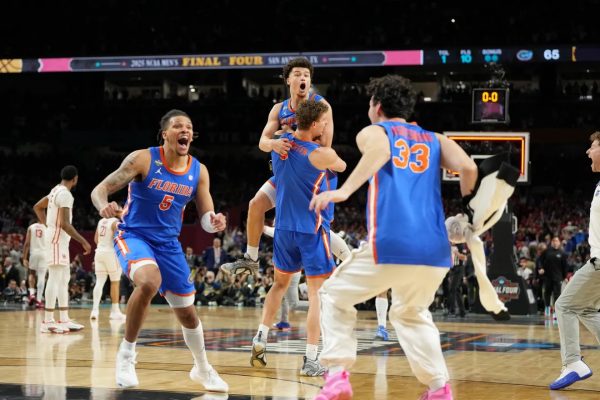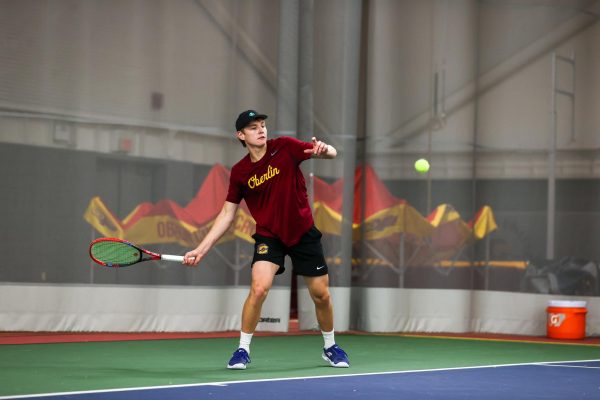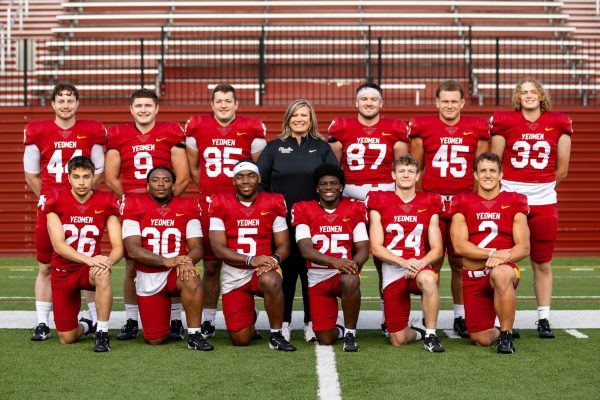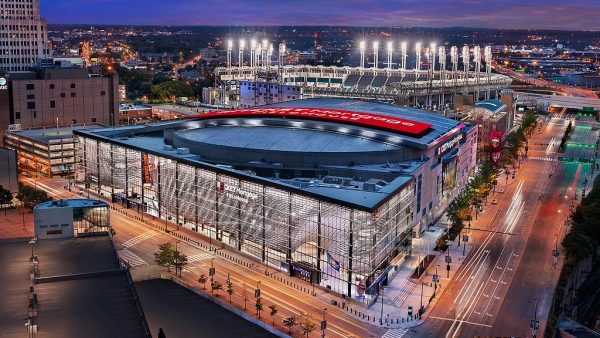Forum Mediates Sports Dialogue
Oberlin’s second installment of a workshop series sponsored by the StudiOC Sports, Culture, and Society course cluster took place Monday, in an attempt to advance the ongoing conversation about the social gap between athletes and non-athletes that divides the campus. Monday’s workshop, entitled “Hate Sports? We Want to Hear About It” and organized by English Professor Yago Colás, aimed to build off the foundation laid by the first workshop, which took place Sept. 25.
Between this week’s and September’s workshops, the panel format changed. While last month’s workshop featured a panel discussion of four Oberlin varsity coaches — facilitated by Colás himself — Monday’s workshop was instead designed to operate as an open conversation.
The shift in structure was a result of the organizers’ dissatisfaction with the nature of the first conversation, entitled “Athletics 101,” which resulted in an outpouring of affection for athletes, rather than opening the floor to different voices and perspectives, according to senior Gwennie Gardiner. “The organizers also felt that the open format with no coaches on the panel would allow more people to speak up who had negative experiences with athletics,” she said.
The conversation quickly homed in on two elements of the Oberlin experience that largely contribute to the reputation of athlete culture on campus: the weekend social scene and prospective students’ impression of the college.
Men’s Lacrosse Assistant Coach Branden Geldart first took the floor to address the social divide of athletes and non-athletes he has already perceived on campus in his first year, a breach similar to one he experienced as a high school athlete.
“Athletes and non-athletes weren’t always connecting in their personal lives,” Geldart said, adding that he was unsure of the reasons why. “Not a lot of them were spending time together on the weekends, and it was sometimes hard to make them want to.”
Double-degree senior Daniel Markus expanded on this divide, acknowledging that even the simple differences in the social media presences of athletes and non-athletes greatly affect which communities people choose to take part in during the weekend.
“Lots of Facebook events I’m invited to for, say, house shows, usually recognize the event as a safe space or make some sort of statement disallowing misconduct,” Markus said. These cautionary notices are not often included on Facebook events for parties hosted by athletes, likely contributing to the discomfort some students associate with weekend parties in athlete spaces.
The athlete community, however, is not the only group on campus that can potentially foster unease at a party, a point raised by senior Allie Cole. “These issues can show up at a party of basically any group of students on campus,” Cole said.
Other students drew attention to another factor that perpetuates the divide on campus: visits from prospective students — prospective athletes in particular — and the way Oberlin is packaged to them.
Head Men’s Soccer Coach Blake New spoke to this criticism, recognizing that the misrepresentation of Oberlin’s athletic community to prospective students is often the fault of both coaches and tour guides who are unaffiliated with the athletic program.
“I’ve seen coaches who never take their prospective students further south than Harkness,” New said. “But I’ve also seen tour guides answer questions about Oberlin athletics with disinterest or misinformation.”
Senior Charis Stanek also chimed in to affirm the swirling theories of potential causes of the athlete gap, adding that the absence of Greek Life on campus is a likely attraction for prospective Oberlin students and may contribute to the campus’s social divide.
“Without Greek Life, it’s possible for athletic culture to sometimes take on that role,” Stanek said, highlighting her sister’s Oberlin experience as a student-athlete and the difficult experience she had feeling accepted by both the athlete and non-athlete communities to further her message.
Colás encouraged attendees to speak as specifically as possible about personal experiences, in a clear attempt to address the divide and its complications head-on, rather than dancing around the issue. While the conversation on Monday was somewhat nonlinear and sporadic, it featured more constructive contributions from attendees, who focused less on the merits of being a student-athlete and more on the ways in which the issues of the athletic community pervade campus.
With only an hour to discuss and debate, the workshop ended abruptly. Colás again encouraged attendees to provide honest feedback and attend the upcoming third workshop in November with dissenting voices. It remains to be seen if the workshop series will yield the progress he, alongside numerous students and faculty members, is looking for. The third workshop will take place Monday, Nov. 27, from 12–1 p.m. in Wilder 101.





